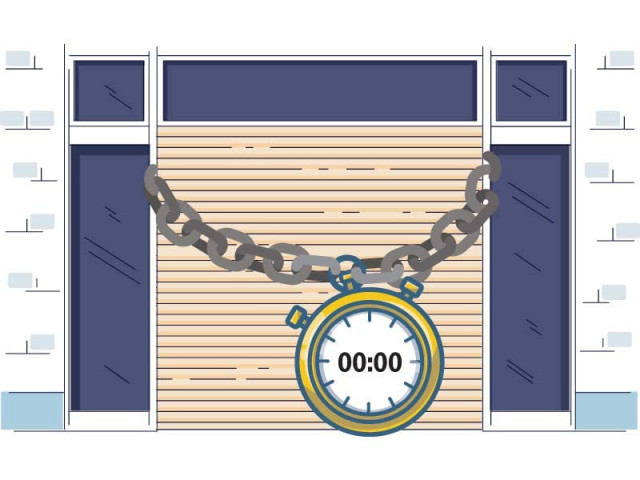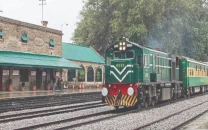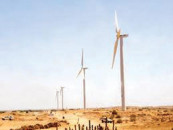Karachi protests inflated bills
Traders warn of extending strike to one week or ten days if demands not met

In a resounding protest against soaring electricity bills and escalating fuel costs, Karachi’s bustling wholesale markets and major bazaars, including Jodia Bazaar, Sarafa Bazaar, and Saddar Electronics, came to a complete standstill on Friday. This strike amplifies the ongoing nationwide demonstrations and sit-ins opposing tariff hikes.
Convener of the Karachi Tajir Action Committee, Muhammad Rizwan Irfan, issued a stern ultimatum, demanding that the caretaker government reduce power tariffs to the levels seen in June 2023. He warned that if their demands are not met, the strike could extend to one week or even ten days, potentially paralysing the entire economic ecosystem and pressuring the government to retract the latest power bill increases.
Read Karachi braces for shutter-down strike
Trade bodies, however, distanced themselves from the Jamaat-e-Islami’s (JI) strike call scheduled for Saturday, asserting their neutrality. They neither supported nor opposed traders and shopkeepers participating voluntarily.
Friday’s strike was organised by the city’s small traders and wholesalers under the auspices of the Karachi Chamber of Commerce and Industry (KCCI), with full support from the chamber’s leadership. However, participation from Karachi’s seven major industrial zones, the country’s economic hub, remained minimal, with most continuing operations as usual.
Speaking to The Express Tribune, President of KCCI, Mohammad Tariq Yousuf, clarified that large-scale industries were not part of the Friday strike but had expressed verbal support for small traders and wholesalers to ensure its success. Nevertheless, KCCI itself remained closed, suspending the issuance of certificates to exporters and the processing of visa documents for businessmen for one day. It was learnt that this impacted export consignments and shipments at the ports.
Yousuf expressed hope that the government would find a solution to the ongoing crisis. He mentioned that Governor Sindh Kamran Tessori had pledged to assist KCCI’s leadership in finding a resolution and was expected to be in Islamabad on Saturday. Yousuf maintained their optimism, stating that they anticipate a solution from caretaker Prime Minister Anwaarul Haq Kakar soon.
“We will monitor the government’s strategy for reducing power bills over the next few days. Next week, KCCI may convene a meeting to assess the situation and determine the way forward,” Yousuf added.
Numerous other markets, including Sarafa Bazaar, the old city area markets from Tower to Burns Road, Kapra Market, Pan Mandi, markets in Saddar, Hyderi, and Lallukhait, also remained closed. Major markets in Clifton observed partial closures. However, small grocery shops in residential areas remained open on Friday.
In a separate development, President of the Federation of Pakistan Chambers of Commerce and Industry (FPCCI), Irfan Iqbal Sheikh, criticised the government for failing to heed the warnings. He noted that the government had once again raised petroleum product prices, potentially igniting a fresh wave of inflation and causing industries to shut down, severely impacting the country’s exports.
Convener of the Karachi Tajir Action Committee, Irfan, further emphasised that prolonged market closures could lead to industrial shutdowns, a decline in exports, dwindling domestic demand, social unrest, rising unemployment, and non-existent economic growth, all aimed at pressuring the government to reverse the recent increases in power and petrol prices.
SITE Association of Trade and Industry President, Riazuddin, revealed that industries in his zone remained closed due to the Urs of Shah Abdul Latif Bhitai. Meanwhile, Chairman of the North Karachi Association of Trade and Industry (NKATI), Faisal Moiz Khan, stated that they would await the outcome of Governor Tessori’s intervention.
Sheikh stressed that the most alarming aspect of the recent price hikes is the petroleum levy on petrol, which has now surged to Rs60 per litre. In a time characterised by stagflation and recessionary tendencies, he argued that such decisions exemplify bad economics, underscoring the need for innovative solutions to stabilise the economy.
It is pertinent to note that late last night the federal government announced the third consecutive massive hike in petrol prices by Rs14.91 per litre and High-Speed Diesel (HSD) by Rs18.44 per litre for the first fortnight of September 2023. As a result, petrol now stands at Rs305.36 per litre, up from Rs290.45 per litre, while HSD is priced at Rs311.84 per litre, compared to Rs293.40 per litre earlier.
Note: The strike and protests are ongoing, and the government’s response remains a developing story.
Published in The Express Tribune, September 2nd, 2023.
Like Business on Facebook, follow @TribuneBiz on Twitter to stay informed and join in the conversation.


















COMMENTS
Comments are moderated and generally will be posted if they are on-topic and not abusive.
For more information, please see our Comments FAQ